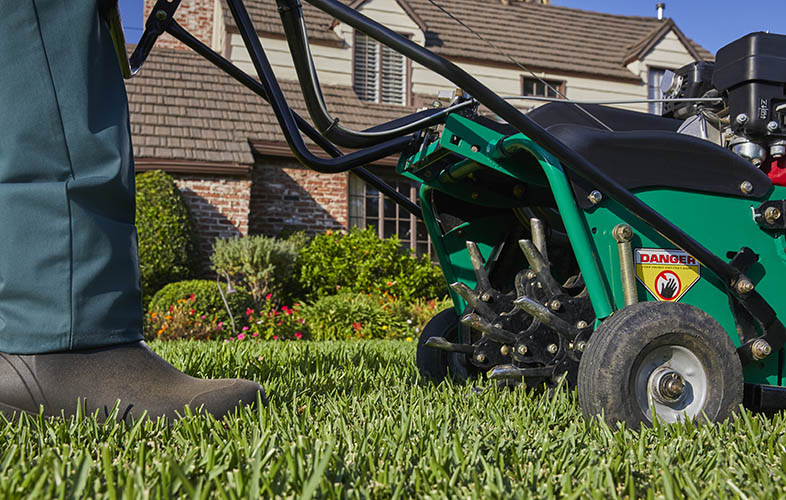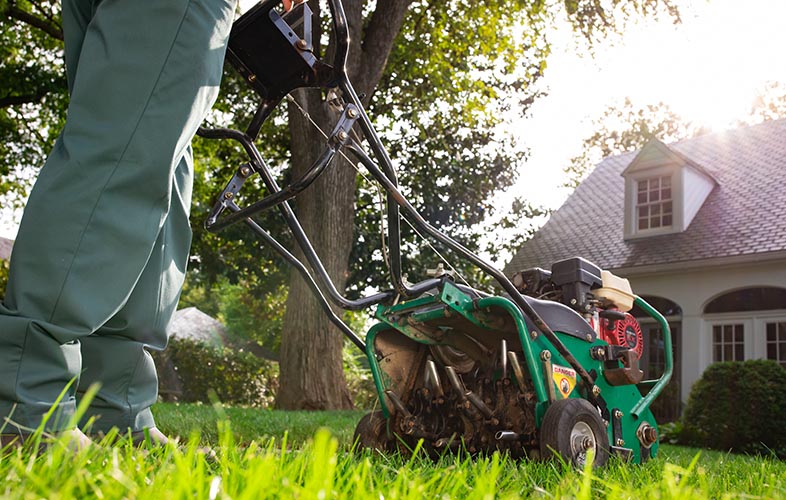Choosing the right grass type is the foundation of a vibrant lawn. Florida offers several options, each with unique strengths:
St. Augustine grass
Florida’s most common turf. Its shade tolerance makes it ideal for properties with trees or partial sun, but it requires regular watering and maintenance. St. Augustine is also prone to chinch bug infestations, so proactive pest control is critical.
Bermudagrass
A favorite for athletic fields and high-traffic yards thanks to its durability. This sun-loving grass grows quickly, which means frequent mowing, but it rewards you with a dense, resilient lawn.
Zoysia grass
Known for its soft texture underfoot and slower growth rate, Zoysia requires less mowing and is relatively low-maintenance once established. It also resists many common lawn pests, making it a smart choice for busy households.
Bahia grass
Extremely drought-tolerant and well-suited for sandy soils, Bahia thrives with minimal input. While not as lush in appearance as other grasses, it’s hardy, economical and perfect for Florida homeowners looking for low-maintenance solutions.
Matching your grass to local conditions ensures better grass growth, lawn vigor and enhanced lawn health.
Explore the best drought-tolerant grass types here.











 Back to all blogs
Back to all blogs

Facebook
X
Youtube
Copy Link
Email